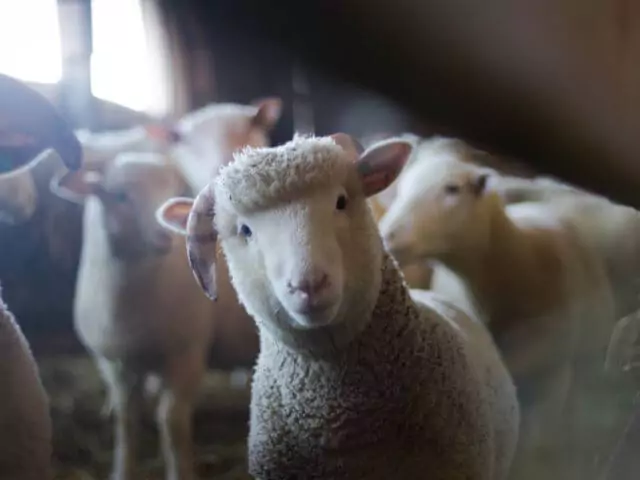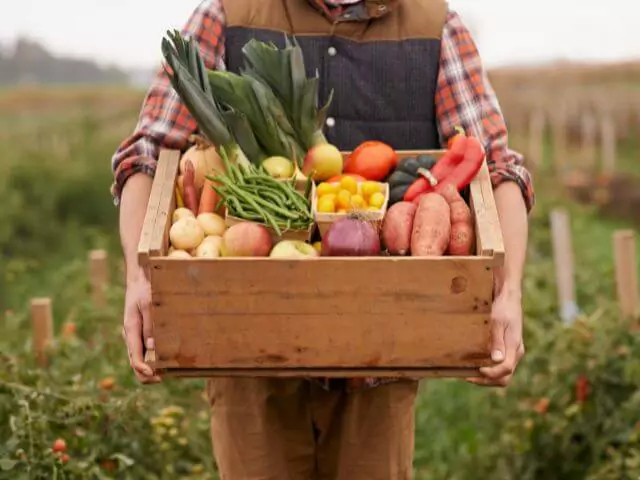When looking back over the history of human existence, there are so many things about today’s society that are unrecognisable from the times gone by. Humans then didn’t benefit from so many luxuries we are afforded now; from medicine and healthcare to technology and infrastructure. One thing that remains consistent though is farming, and it continues to be an essential staple for human life to thrive.
This age-old agricultural practice feeds and waters humanity across the globe. While farming practices may differ from country to country, the process is essentially the same, as is its value.
While it might not be everyone’s cup of tea, mustering goats, harvesting crops and rotating the paddocks has many substantial benefits besides produce production. If you’re looking for ways to improve your health, and mental wellbeing or instil important values in your children, you might want to consider living a more rural life as a farmer.
After all, with more people moving to the countryside and coastal locations, it might be time for a relevant career change. If you’re wondering ‘What are the benefits of farming?’, keep reading!
1. Farming is Good for Your Health
While being around farm animals all day is an animal lover's idea of heaven, it’s also really beneficial for human health. There is ample evidence surrounding the mental and physical health benefits of having a pet, but increasingly, the unique way farm animals positively impact human health is being realised too.
Studies have shown that farming animals can:
- Reduce the likeliness of developing asthma and allergies - When humans are exposed to animal dander, dirt and germs frequently from a young age, they are much less at risk of developing these conditions
- Boost your immune system – In a similar vein to the above, studies have shown children growing up on farms have more powerful immune systems, more robust gut microbiomes and experience fewer chronic childhood diseases. This is typically attributed to more movement, higher levels of vitamin D through frequent sun exposure and the regular inhalation of barnyard dust which, contrary to what you may believe, is microbe-rich and helps boost immunity
- Keep your heart healthy – Being around animals on a regular basis helps keep stress levels down, it also lowers blood pressure and cholesterol. The exercise associated with farm work also keeps you active, which helps with weight loss and the risk of obesity
- Have positive mental and emotional benefits – Horses are a commonly used therapy animal and equine riding programmes have had significant success in reducing anxiety and stress in teenagers. Individuals with behavioural, emotional, memory and mental health issues can also have visits/work at Care Farms prescribed as part of their treatment. This is because the benefits of visiting a farm, caring for and interacting with farm animals have proven to provide structure, purpose, a form of relaxation and better-coping skills, among other benefits

2. Being a Farmer is Challenging and Stimulating Work
Farming can be an incredibly enjoyable and rewarding way to make a living, but that’s not saying it’s easy work by any means. Due to its evolving nature and mostly unpredictable working conditions, one of the great benefits of farming is that it keeps you on your toes.
You will never find a farmer who says their job is boring. There are new obstacles and changes in the farming world on an almost daily basis, so it’s a great line of work for anyone who thrives on a challenge.
From pest control to environmental shifts, evolving customer demands and rapid technological development, you will definitely develop sound problem-solving skills as a farmer.
3. It Provides a Source of Income in Rural Areas
Not only do farmers keep everyone fed and watered, but they also play a vital role in the economy and provide essential employment for people in rural communities.
Farming and the agricultural industry as a whole is actually one of the main sources of employment in a lot of places. There are numerous jobs in this area, from the farmers yielding the land to the Technicians working on the harvesting equipment, and the Scientists thinking up farming methods of the future.
In many poor areas and developing countries, farming has been shown to save people from poverty and vastly reduce rates of unemployment. Studies have also shown investment in this area helps the economy in terms of employment more than in other areas, further proving the economic benefits of farming.
4. Farm Work Helps Develop Younger Generations
Another excellent reason to get into or at least regularly experience farming is the educational benefits of visiting a farm for younger generations. Farmers above all are renowned for an excellent work ethic, determination and grit, something which can be tough to instil in youngsters. Especially in an age where technology is making life much easier for us all.
Children who grow up on a farm are known to have a stronger grasp of the value of hard work. They see the direct correlation between putting in effort and the rewards that come from it. Simply put, if the work isn’t done, farmers won’t make a profit. As such, having children be exposed to this environment teaches them the importance of being accountable for their responsibilities.
Children working on a farm will also:
- Have a greater appreciation for animals and our land
- Develop teamworking skills
- Understand the concept of saving money and spending wisely
- Learn to take pride in their work
5. Farming Can Help the Environment Thrive
While there are many personal benefits of farming that you can expect, there are also a number of benefits of farming to the environment. As a farmer, if you recognise and prioritise the biodiversity on your land, you will help maintain the essential balance of life for that environment to thrive.
Healthy biodiversity is vital for the long-term survival of humans and other species. It also directly benefits the health of the soil, reduces erosion, provides healthier pollinators and it enables more effective water conservation, all of which are important for successful farming.
Finding the Balance
While farming can benefit the environment, this is only if environmental protection is kept at the forefront of farming processes, which sadly hasn’t always been the case.
As farming is an ancient practice that continues to play a vital role in human existence, a balance needs to be found between farming production gains and the impacts on the ecosystem. Like anything, farming has evolved and improved over time as technology and data advance, but many of the environmental issues posed by farming have come as a result of a lack of education in the farming industry.
As is often the case, farming is a role typically assumed by the family members of farmers, with children of farmers learning the ropes until they are old enough to take over the running of the farms themselves.
Undoubtedly, these are skilled and knowledgeable individuals who soak up years of lessons and experience from their elders. However, with no educational barrier to entry for most farm jobs, there is a lack of scientific understanding on the ground in farms, which is coming at a detriment to the environment.

Signs of Change
Making farming more sustainable has always been a challenge because the processes are complex and there are so many factors to consider. However, significant positive change has occurred in recent years in the industry, and this is partly due to the benefits of organic farming.
Organic farming came from the need to prevent the harm to the environment that was caused by chemical pesticides and synthetic fertilisers. Now, through organic farming, fewer pesticides are used which helps minimise soil erosion, reduce ground and surface water contamination from nitrate leaching, and enables more animal waste to be put back into the farm.
While positive changes in farming like the move to organic farming processes have come at a higher cost to the end consumer, their benefit to the environment is significant. This has spurred many aspiring modern farmers to delve into the science behind the processes and come up with new ways to maintain the environmental benefits of farming while increasing yields, reducing prices and continuing to meet the challenges of climate change and a growing world population.
Why Study Farming-Related Courses?
If you are considering a career in farming, studying relevant courses is a fantastic way to equip yourself with the essential skills and knowledge to thrive in this field. Farming today is about much more than tending crops and animals—it involves managing machinery, understanding sustainable practices, and ensuring animal welfare.
At learndirect, we offer three farming-related courses designed to help you enter this rewarding and essential industry:
Farm Machinery Care
Gain an understanding of how to maintain and operate farm machinery efficiently. This course provides practical knowledge essential for running a modern farm, including the upkeep of equipment critical for planting, harvesting, and other agricultural tasks. By mastering these skills, you’ll help reduce downtime and improve productivity.
Farming Management
Learn about the business side of farming, including budgeting, financial planning, and operational efficiency. This course prepares you to make informed decisions that optimise your farm's performance while keeping sustainability and profitability in mind.
Farm Animal Studies Level 3 Award (RQF)
Develop a comprehensive understanding of farm animal health, welfare, and husbandry. This course is ideal if you’re passionate about animal care and want to ensure high standards for livestock.
By enrolling in these courses, you’ll gain valuable insights into the environmental, technical, and managerial aspects of farming, putting you in a strong position to succeed in this dynamic industry.

Start a Career in the Farming Industry
- Stay competitive in the job market: With increasing automation and scientific advancements, having specialised knowledge is vital for navigating the complexities of modern farming
- Drive sustainable practices: By learning how to manage farm machinery efficiently, care for animals, and make data-driven decisions, you can contribute to environmentally conscious farming methods that benefit the planet
- Unlock diverse career opportunities: Whether you want to work on a farm, manage agricultural operations, or specialise in animal welfare, these courses open doors to various roles in the industry



















